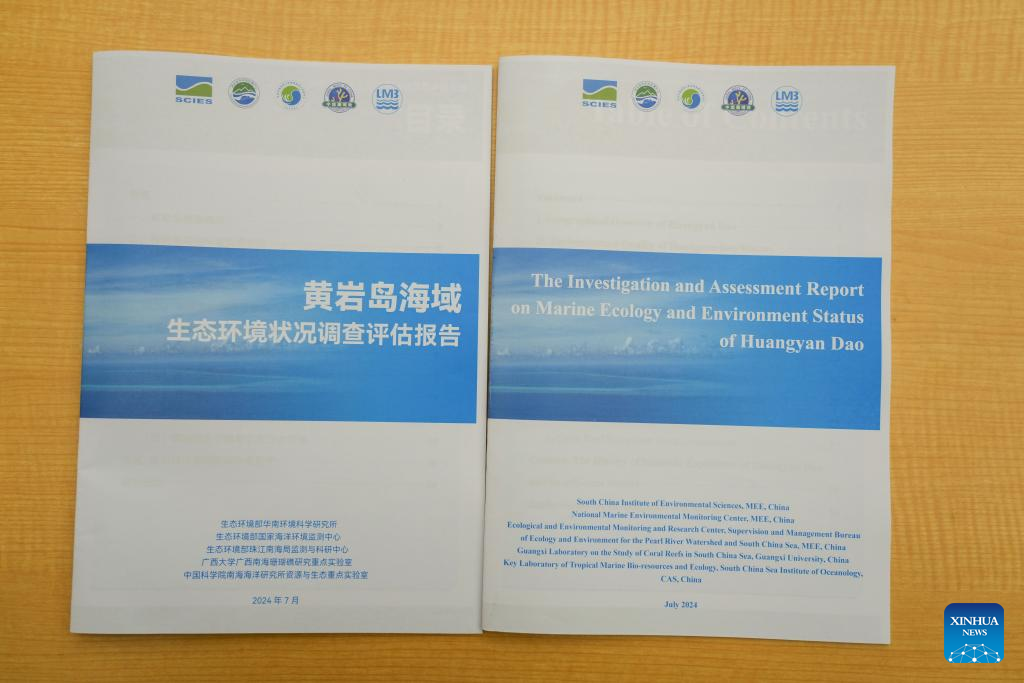
This photo taken on July 10, 2024 shows the Chinese and English copies of a report titled "The Investigation and Assessment Report on Marine Ecology and Environment Status of Huangyan Dao" in Beijing, capital of China. China's Huangyan Dao area in the South China Sea enjoys excellent environmental quality and healthy coral reef ecosystem, said a report released on Wednesday. The report was jointly released by multiple institutions under the Ministry of Ecology and Environment, the Chinese Academy of Sciences and the Guangxi University. (Xinhua/Zhang Yuwei)
China's Huangyan Dao area in the South China Sea enjoys excellent environmental quality and healthy coral reef ecosystem, said a report released on Wednesday.
The Investigation and Assessment Report on Marine Ecology and Environment Status of Huangyan Dao was jointly released by multiple institutions under the Ministry of Ecology and Environment, the Chinese Academy of Sciences and the Guangxi University.
The findings the report presents are based on an on-site investigation conducted in May and June on various aspects of the marine ecology and environment in the Huangyan Dao area including seawater quality, coral communities and reef dwelling fish, as well as the comprehensive analysis and assessment utilizing previous scientific expeditions, research outcomes and satellite remote sensing survey results of the area.
The seawater quality and the marine sediment quality were both rated as Grade I in the waters of the Huangyan Dao, according to the results of the investigation.
The residual level of pollutants, such as heavy metals and petroleum hydrocarbons in fish samples, were below the standard limits, and no cyanide was detected in the seawater, marine sediments and fish samples, said the report.
The weight density of floating litter was also at a low level, the report said.
The investigation recorded 109 species of hard corals belonging to 34 genera and 12 families, marking the highest species diversity ever documented, said the report.
There is a high biodiversity in coral reef ecosystem at the Huangyan Dao area, as the investigation recorded 125 species of coral reef fish from 23 families, along with other key groups such as giant clams, blue coral and sea anemone, according to the report.
No phase shifts from coral to macroalgae and no coral reef diseases were observed, and there was no outbreak of crown-of-thorns starfish, according to the on-site investigation.
Moreover, the Huangyan Dao hard coral communities demonstrate strong resistance and tolerance to rising sea surface temperature, making Huangyan Dao an important habitat for corals and related species in the South China Sea in face of global warming.